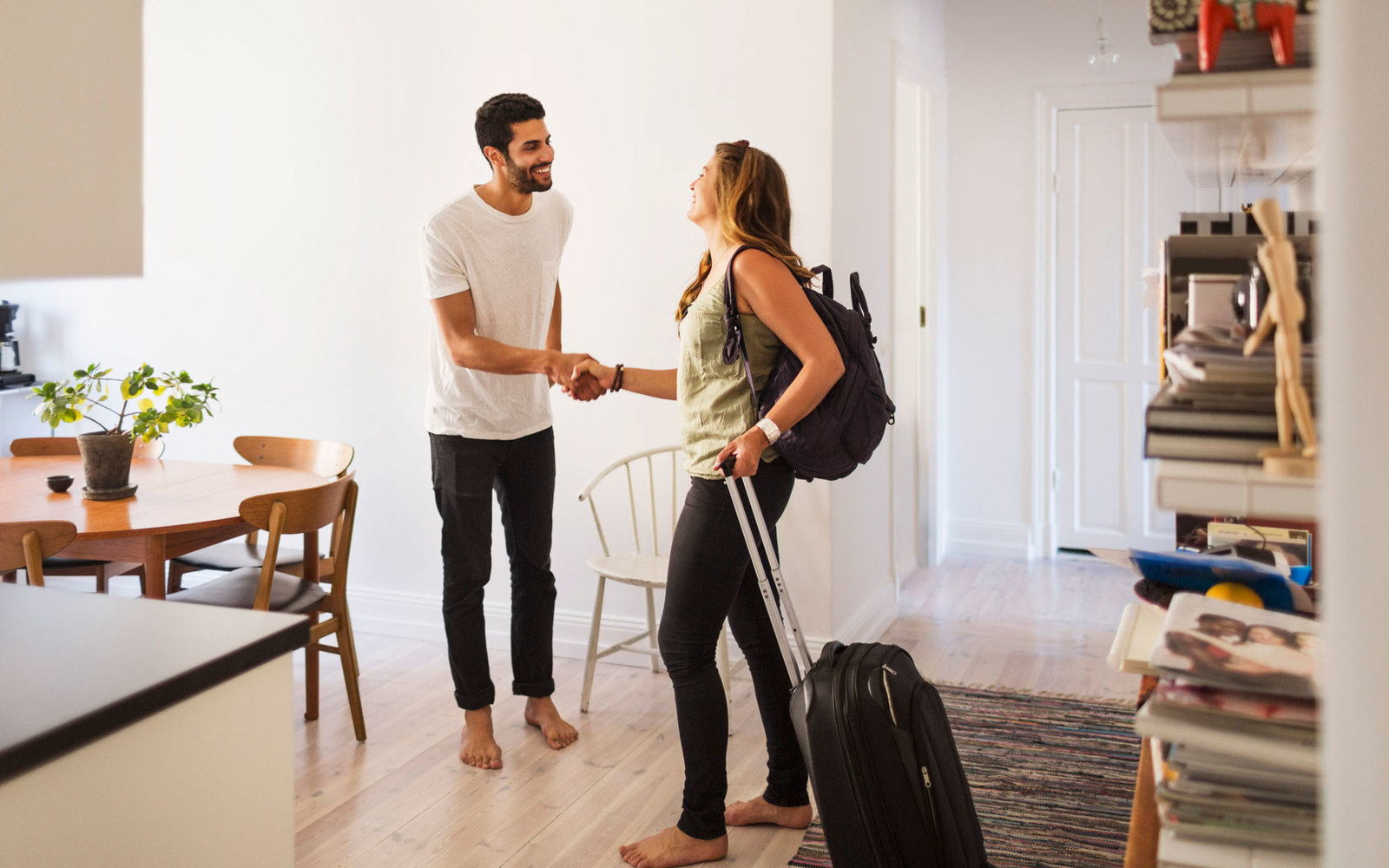Using Airbnb to advertise a holiday property has grown in popularity over time. Having a presence on their site has become nearly mandatory for hosts who wish to increase their exposure and reservations. After all, Airbnb is one of the most popular short-term rental websites on the internet today.
However, some individuals do not achieve the expected results, prompting the question: What am I doing incorrectly, and what prevents me from making future bookings?
Knowing how to avoid the most frequent Airbnb blunders will help you enhance your listings. You’ll be one step closer to receiving more reservations if you know the faults to watch for.
In this article, we’ve compiled a list of the top 10 mistakes made by Airbnb hosts, which you may avoid and learn from.
1. Incomplete or incorrect listing data
The first step to having a terrible Airbnb experience is not transparent about your listing. A deceptive description that gives an erroneous image of your house will always result in a poor review. As soon as they arrive on your Airbnb listing, you want your visitors to know precisely what to anticipate.
They’ll want to know how many rooms you have and how big the beds are. Describe the amenities, features, and facilities of your rental property, as well as the overall benefits of staying there.
In your listing description, keep things basic. Set some home rules, and don’t be scared to enforce them. For example, if guests are permitted to bring extra visitors or pets, whether smoking is permitted, whether any portions of the property are off-limits, and so on.
2. Using the Incorrect Photographs
According to the National Retail Federation, 67 percent of shoppers consider product image quality when choosing and booking a vacation rental. Make sure your vacation home is well-presented to offer your visitors an indication of what to anticipate.
Here are some pointers for photographing yourself:
- Use a high-resolution camera while taking pictures: They should be at least 1024 x 683 pixels, but if you’re unsure, use the largest picture size available in your camera settings.
- Photographs of local activities and landmarks: Customers will want to know what they can do in the region if one of the finest parts of your listing is the location – imagine breathtaking vistas, beaches, theme parks, and tourist destinations.
- Tuck away anything that seems to be a tangle: Is it really necessary to provide photographs of overflowing kitchen garbage? Show your visitors how to locate your property when they arrive; it should be spotless!
- Get the light exactly right: Whether you turn on the lights or open the curtains, make sure your home is bright and welcoming. Also, keep an eye out for a nice day!
- Make motivational picture captions: Forget factual captions and instead compose a statement that describes the experience your visitors will have while staying at your property. Instead of just naming the balcony photo “Balcony,” say something like, “After a long day of traveling, relax and enjoy a glass of wine on our balcony.”
Check out our post on capturing professional vacation rental images for more in-depth instruction.
3. You don’t have a pricing strategy.
Throughout the year, the demand for your listing must be taken into account in your price approach. Change your rates by the following criteria:
- Research your competition by browsing for nearby properties with high reviews and similar features to your vacation rental. To figure out how much money you may make from your listing, evaluate the prices of similar items and the availability of shipping options.
- Unique occasions: Festivals, marathons, conferences, and other special events may bring you more visitors and allow you to charge up to 5x your typical day cost. You may also raise fees for last-minute planners a week before a large event — they often have the most money to spend! Make a point of researching and planning unique events early in the year.
- Weekends vs. Weekdays: What’s the difference? It’s a reality that hotels are well aware of: visitors travel more on weekends, and pricing should reflect this.
- Seasonality: To optimize revenues throughout the year, adjust your price depending on whether it’s peak or off-peak in your location.
4. Failing to capitalize on customer feedback
Guest trust is the foundation of Airbnb, and the best way to earn it is via reviews. To make the best decisions for their vacations, travelers depend on the advice of others. When prospective visitors research your property, they will always read evaluations left by previous guests.
You will get more reviews if you write a review for each visitor. Writing reviews will not only help prospective bookers trust you, but it will also increase your visibility. More people will locate your home since your name and profile will display more often on the site. In general, it will improve your search engine ranking.
Remember that for any guest or host to appear, they must both review. Bookings will begin to come in quicker as your listing accumulates reviews. It will also help you establish your profile and reputation as a host by increasing the number of reservations you get.
5. Ignoring your visitors’ needs
On Airbnb, how do you handle client communication? Are you quick to respond? Or do you go for a few days?
Every stage of communication affects your visitors’ experience, from the minute they contact you to when they leave a review after their stay. The amount of time you take to react, how you respond, and the thoroughness with which you respond may all impact how your visitors feel about their stay at your Airbnb. As a result, it’s critical to demonstrate that you care about your visitors’ experience and that they’re in excellent hands with you.
Fortunately, Lodgify’s Airbnb property management software comes with a collection of predefined templates that you can use to communicate with your visitors more quickly. Any communication you send or receive on Airbnb will immediately display in your Lodgify account. Similarly, your Lodgify account may be used to interact with your Airbnb guests. All of your messages are consolidated into one location.
6. Workload Overestimation
Underestimating the dedication, attention to detail, organization, and work necessary is one of the most common errors made by Airbnb hosts. Of course, the more rental properties you have, the more work you’ll have. Even if you’re simply listing a single room or an apartment, you’ll have to deal with several issues.
Cleaning, refilling amenities like toilet paper and coffee capsules, handling check-in and check-out, caring about the property, and so on are just a few examples.
If you underestimate the workload and fail to complete any chores, your company will fall short of the guest’s expectations. This may severely harm your rental’s reputation, resulting in bad reviews and fewer reservations.
Order and responsibility are best maintained by developing a checklist for all the tasks that must be completed in between each guest shift.
7. Lack of knowledge of local laws and regulations
As a result of Airbnb’s fast expansion, the legal position in many states has grown considerably more stringent in governing rentals made via the site. The legislation has progressively adjusted to Airbnb’s expanding popularity by controlling its usage, particularly in recent years. Airbnb has already been banned in a few major American cities.
However, the restrictions may vary depending on the location and state. Don’t make the mistake of renting a property without first finding out what the legal requirements are in the region. Make sure to find out whether you may rent on short notice at all, how many square meters you can rent to tourists, and what licenses you’ll want.
Don’t rely on “it’s OK” because you have friends who use Airbnb in a different state to find a place to stay. States and cities have vastly different laws and regulations.
Not knowing the legal status of renting out your home on Airbnb is an enormous mistake for hosts. Avoid a hefty fee at all costs! Be careful to account for all applicable fees, taxes, and permits.
8. Failure to take any safety precautions
Of course, when renting via Airbnb, trust between hosts and guests is essential. You should, however, take the required security precautions to safeguard not just yourself and your property but also your visitors’ safety.
A key focus should be ensuring the safety of your visitors. Installing smoke and carbon monoxide detectors, offering a first aid kit, and providing emergency phone numbers are all basic steps to consider.
Even if you trust your visitors, tourists may take advantage of this trust from time to time. The first step is to draft a rental agreement and consider accepting a deposit.
When you rent out your home, it will provide additional security and safety. House rules should be posted, and visitors should sign them. These rules must be followed by all visitors (e.g., no smoking in the apartment, no additional visitors, etc.)
Avoid keeping valuables in your apartment while it is unoccupied, and make efforts to protect them against break-ins.
9. Inadequate Insurance
Many hosts make the mistake of not purchasing short-term rental insurance. If your company isn’t well-protected, there’s not much you can do once a problem arises.
While Airbnb does give hosts $1 million in property damage insurance, this only applies to damage caused by visitors. Events that guests cannot control, such as floods, roof leaks, or other natural disasters, are not covered by this insurance. It is the host’s duty to ensure the security of the venue.
In the case of damage to your property or an accident involving one of your guests, be sure you are covered by insurance. Your current homeowner’s insurance policy may not cover damages incurred while renting your property to guests.
10. Using Airbnb as a sole source of revenue
Most Airbnb hosts’ last and most common mistake is depending only on a large listing site for rental revenue. Airbnb charges a 3 percent (+VAT) host service fee every time a booking is completed, as well as 6-12 percent (+VAT) service costs for Airbnb guests in the long term. And it will very certainly get more costly over time. Use the Airbnb calculator to find out how much Airbnb is costing you.
By becoming less dependent on Airbnb and other large listing sites such as Vrbo and Expedia (don’t miss this comparison between Airbnb and Expedia), vacation rental businesses may cut out the middlemen and save money. You can take charge of your company, diversify it, and produce your direct bookings to make more if you have the correct mentality, expertise, and tools.
So, how do you intend to proceed? To begin, create a vacation rental website. If you utilize Lodgable to create your website, you won’t have to worry about your lack of online technical skills.; it’s as simple as making an Airbnb listing! You may select from over 30 attractive, contemporary designs, and you can customize all of the features to your liking.









